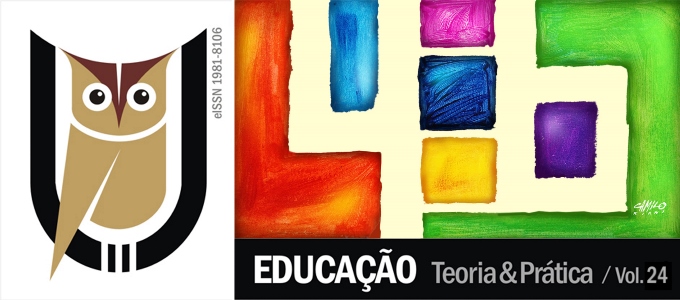Interlocuções teóricas entre Paulo freire e Ernst Bloch: diálogos acerca do Princípio e da Pedagogia da Esperança
DOI:
https://doi.org/10.18675/1981-8106.vol24.n46.p40-54Palavras-chave:
pedagogia, esperança, sonho diurnoResumo
Neste artigo propomos discutir a concepção de esperança e sonho diurno a partir dos escritos de Ernst Bloch e Paulo Freire. Tomando como base a produção de Ernst Bloch exploramos a filosofia da esperança, como sendo a expressão de um afeto expectante positivo, a partir do imperativo de a compreendermos como ato relacionado a um compromisso político de busca pela constituição das utopias concretas. A problematização do termo a partir de Paulo Freire, por sua vez, insere a discussão acerca da importância da Pedagogia da Esperança como processo de aprendizagem política de exercício e comprometimento com uma utopia. Neste debate, resgatamos o conceito de esperança, inédito viável e inacabamento em Freire. Assim, reivindica-se a necessidade de uma reflexão crítica sobre a importância deste tema na atualidade frente aos discursos fatalistas neoliberais, bem como o imperativo de nos orientarmos no sentido de construirmos sujeitos de sonhos que desafiam o instituído e que vejam significado na luta por uma pedagogia da esperança que alcance tanto a escola, quanto os demais espaços educativos de formação do ser humano.Downloads
Arquivos adicionais
Publicado
Como Citar
Edição
Seção
Licença
Os Autores que publicam nessa revista concordam com os seguintes termos:
a) Os autores cedem os direitos autorais à revista, com o trabalho simultaneamente licenciado sob a Creative Commons Attribution License que permite o compartilhamento do trabalho com reconhecimento da sua autoria e publicação nesta revista.
b) A política adotada pela Comissão Editorial é a de ceder os direitos autorais somente após um período de 30 meses da data de publicação do artigo. Transcorrido esse tempo, os autores interessados em publicar o mesmo texto em outra obra devem encaminhar uma carta à Comissão Editorial solicitando a liberação de cessão dos direitos autorais e aguardar resposta.
c) Esta revista proporciona acesso público a todo o seu conteúdo, uma vez que isso permite uma maior visibilidade e alcance dos artigos e resenhas publicados. Para maiores informações sobre esta abordagem, visite Public Knowledge Project, projeto que desenvolveu este sistema para melhorar a qualidade acadêmica e pública da pesquisa, distribuindo o OJS assim como outros softwares de apoio ao sistema de publicação de acesso público a fontes acadêmicas. Os nomes e endereços de e-mail neste site serão usados exclusivamente para os propósitos da revista, não estando disponíveis para outros fins. This journal provides open any other party  Esta obra está licenciada sob uma Licença Creative Commons
Esta obra está licenciada sob uma Licença Creative Commons











